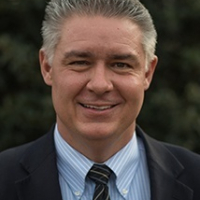Three Signs that Your Child is Getting the Wrong Sort of Classical Education

We have a running joke in my family, actually it is just between my third daughter and I, every time she sees one of those signs that says, “ROAD WORK AHEAD,” she always says, “I sure hope so.” I always giggle. She says it just right!
When you see a sign like this, it is not so that witty high schoolers can make their fathers laugh, it is because you need to be on your guard. Trouble could be coming and you need to pay attention. If the sign says, ROAD OUT AHEAD, you need to change directions.
Sometimes, as parents, we can fail to see that signs that something is going wrong with our kids. The signs are right in front of us, but because our children are so familiar to us, often we can miss the problem that is staring us in the face. The signs are there but we are not paying attention. In today’s post I want to talk about warning signs that might be telling you that your child is not getting the education that they need or that they are not receiving the classical education that you want for him or her. I will try take on how to respond to these signs in another post, but I wanted to start with a frank discussion of these signs.
- He or she loves the wrong things persistently and exclusively
Augustine famously said, “Love God and do what you will.” He knew that if this first overarching love was in place that many of the other things in life would naturally fall into place. He is so right! As a young father I imagined that could transfer all of my beliefs, music tastes, and fashion choices into my children’s hearts permanently. As I grew older and wiser, I came to see the folly of my desires. I have four daughters. They are not going to love everything that I love in the same way that I love it. My list of “stop the world” issues has gone from about 1000 to about 10, but those ten are very important. They are things like: Do they love Jesus? Are they regularly worshipping in a Bible-believing church? If they are not doing these things, we need to stop everything and just talk.
Now, I need to make a few important caveats. Note, that I said that their wrong loves are persistent and exclusive for it to be a real warning sign. Teenagers will end up liking some things, even loving some things, that they probably should not and will not for the long run. My girls like some of the music I like: Miles Davis, Palestrina, Bach, Bob Marley, and Van Morrison. I have found, however, that all of them seem to end up loving somethings that I really think they shouldn’t: like some pop music, K-pop, and Tchaikovsky (1812 Overture exempted). Their tastes are their own and I need to let them make some mistakes, take opportunity to talk with them about their tastes, and in some cases learn why they love the things that I don’t.
The warning lights should start flashing when they persistently hate the things on the Big 10 list or they have persistent exclusive loves of things that are wrong. As parents, God calls us to lovingly confront problems like this with both gentleness and firmness. Failing to do so could be a sign that our love for our child needs to be stirred up.
My last caveat is this: children struggle. They struggle with their faith. They struggle growing into adults and if they don’t struggle at home, they might end up struggling someplace else. Emily and my hope is that we can be parents with whom our kids can share their struggles. This hope has not always been realized, but that is out aim. If your child has no struggles, I would worry a little that you might not be seeing the heart of our child or that they might be saving up struggles for when they leave home.
- He or she is either too narrow person or too open minded
This sign might seem a little contradictory, but it is really two sides of the same problem. A classical Christian education should be having the impact that taking our natural mindsets and inclinations and sanctifying them. This means that the miserly will learn generosity and the free spirits will learn caution. Reading the Great Books should be having that impact. Knowing history should be having that impact. Knowing human nature and God’s grace should be pushing us to our knees and toward the imitation of Christ (as a Kempis said). The direction of a student receiving a classical Christian education should be toward the human middle rather than to the extremes. The result, of course, will differ based on the interests and giftings that God has given each child.
Both extremes are warning signs. They demonstrate the child is missing something that classical education is trying to teach them. This can be seen in theological rigidity or narrowness. Failing to see Christ in the faces or words of believers today or of the past—even ones who are very different than us—is a sign of narrowness. Classical education and a study of Christian history should bring us to the point that Dante reaches in the Heaven of the Sun in Paradise where St. Thomas, the Dominican, praises St. Francis of Assisi, and where St. Bonaventure, the Franciscan, praises St. Dominic. Both condemn their own order. These orders were warring against each other during Dante’s day. Classical Christian education points us toward seeing God in others and condemning our own sins rather that turning a blind eye to our sins and condemning others.
The other side of the log is also a warning sign. Failing to find any footing in the world or anything worth standing for as truth is a severe problem—and this infection is the main disease being peddled by our culture today. This toxin leaves the students with no enemies, no friends, no heaven, and no hell. In the end, it devolves into being led by one’s feelings. A student like this is missing something critical that classical Christian education has been striving to tell them: truth is worth protecting, it is worth dying for, it is worth living for, and it has a name: Jesus.
- He or she is imprisoned by the prejudices of our age or the tastes of some golden age
This sign, again, is two-sided. Parents should be concerned when students are failing to be liberated from contemporary prejudice by their classical education. Note, this does not mean that boys will stop caring about the NFL and only think about the strategy of the Peloponnesian War. It does mean that a classical education should be making them continually and increasingly immune to the modern trope that prattles this movie, music, news story, tweet, etc., is the most important thing ever. Any soda commercial that exclaims, “Mystic Mountain Sunshine flavor is changing the course of world history” should be cause for laughter rather than contemplation.
Classical students sometimes fall off the log in other ways too. Instead of being imprisoned by culture they end up being imprisoned by some golden age—or at least looking like they are trapped in Victorian times. The problem actually can be more pernicious than the other because often it is rooted in pride. What they are really trying to show their friends in college is that they know how to dress the right way and their friends don’t. Sometimes I find clumps of classically educated kids at colleges who are giving the low-key moral lecture by wearing tweed fabulously while they sit in a circle condemning everyone who doesn’t read Dante for fun. You can imagine that their cultural impact on campus is something best calculated using negative numbers.
One final word to parents—each type of parent in turn—first, to moms, if you are reading this post and the conclusion that you have already reached is that you are guilty and have done something terribly wrong, please set that aside. All kids have problems and struggles. That is why God gave them parents. Your call is not to calculate your guilt—Jesus already did that—but to engage your child and love them through these challenges. Second, for dads, typically, if these signs are going on in the lives of your children, you need to get engaged, pay attention, and block out more time to talk to and spend time with them. Use this time to build up the relational capital that you need to help your children listen to your words and when you speak into their hearts make the words full of grace and love, but also full of truth for your struggling child.







